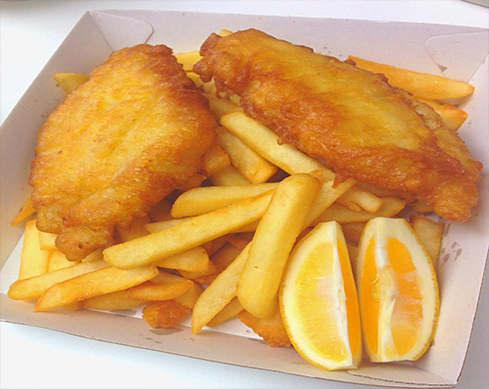

This means fresh fish can be ferried from the coast to anywhere in less than a day. If you’re within the shores of the UK, you’re never more than 70 miles from the sea (the furthest possible inland distance). You could consider keeping these rules in place to help returning customers feel more at ease. Increased cleaning and disinfecting rota.Spaced out seating for social distancing.There are still some basic safety requirements that help to make your event attendees feel safe, such as: However, cultural changes have still taken place, including a new understanding about the spread of germs that public places can influence. In August, all COVID-19 safety rules and regulations were fully lifted, which means that you don't legally need to require any specific safety measures from customers or staff members if you're planning to host events.

What COVID-19 rules do fish and chip shops need to follow? If not, you may need to consider taking out a business loan to cover short-term or emergency costs. The main thing to consider if you're looking to open a new business now – particularly in the hospitality industry – is that you have enough cash reserves to cope with a sudden expense or increase of overheads. New businesses can still establish themselves in today's market – you just need to engage in careful planning and a more strategic approach. Luckily, the above obstacles are not impossible to navigate. It's also not 100% certain whether there will be future lockdowns, which means you might be legally required to close up shop soon after setting up – naturally, this will have an expensive impact on your cash flow. This is particularly challenging for startups to tackle if you don't have strong supplier foundations yet. Many government support policies, including Business Rates Relief, are also still on offer for SMEs to take advantage of.īrexit has meant the fishing industry is dealing with added costs in the supply chain as well as slower or missed deliveries. There are plenty of positives on the menu.įor example, a surge in takeaways and dining has meant high street footfall is recovering steadily post-Covid, giving you a much stronger customer base to work with compared to the same period 12 months ago.Īccording to a recent market report by the British Takeaway Campaign, 38% of households ordered takeaway at least once a week at the height of the pandemic (and that's just the ones that will admit to it) spending an average of £45 per month in 2020. The list of pros and cons to starting a fish and chip business now is fairly balanced. Should you start a fish and chip shop now? One large portion of help and advice, coming right up…. Our experts will give you helpful tips on everything from launching a website for your business, to choosing accounting software or a point-of-sale (POS) system. In this guide, we'll talk you through all this and more to give you all the information you need for setting up a fish and chip store. Plus, in spite of the cost of living crisis, customers are hungrier than ever for convenient eating options. The tragic closure of many SMEs has meant the availability of premises has improved, while commercial regulations have also eased. However, these challenges have also brought plenty of opportunity. Business overheads are rising, there's a recession looming, and, post-Brexit, supply chain issues have had major impacts on the UK fishing industry and the wider food and drink sector.

Each year, we eat an estimated 382 million meals from fish and chip shops, cooking up a whopping £1.2bn according to the National Federation of Fish Fryers (NFFF).īut if you're feeling tempted to throw your own hook into this thriving industry, there are still plenty of important things to consider.


 0 kommentar(er)
0 kommentar(er)
